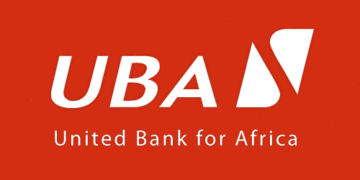For leaders in energy and sustainability, tech, and digital sectors across Africa, communication has become a frontline function for managing regulatory complexity, investor expectations, and social trust.
The chief commercial officer of APO Group, Laila Bastati, who stated this in a report themed: ‘Regulatory Risk, Reputation, and the New Role of Comms in Africa,’ used APO Group’s client data to buttress her point, saying that in the first half of 2025, demand for reputational crisis support rose significantly. A dipstick poll of our 57,000+ LinkedIn network also flagged energy and sustainability, and tech and digital as sectors in need of attention in Africa, which invariably means that visibility alone is no longer enough, she stated.
She listed the energy, tech, and digital sectors as attracting attention to strategic communication in Africa.
On Energy and sustainability, she said that from Nigeria’s diversification strategy to South Africa’s unbundling reforms and Namibia’s green push, communicators must now translate ambiguity into trust-building messaging. She added that sustainability communications must withstand activist, investor, and local scrutiny without the cushion of global consensus.
For Tech and digital, the CCO for APO Group stated that, in Kenya, Nigeria, and Ghana, AI adoption is racing ahead of legislation, which then puts public relations(PR) teams on the front line: managing deepfake risk, public confusion over AI applications, and the reputational implications of algorithmic bias – all before regulatory frameworks are finalised. She said that without this certainty, legal and compliance voices are prone to shaping communications more conservatively.
This development, she said, encourages electoral interference, especially with several African nations holding elections in 2025. It raises concerns over AI-generated misinformation, including deepfakes, which could be used to manipulate public sentiment or discredit political figures.
“Already, the African Union and Kenya’s National Cohesion and Integration Commission have raised early warnings about AI-driven disinformation campaigns seeded through social media networks. For PR teams, this means that election-year communications strategies must now include real-time fact-checking, media training to counter visual manipulation, and crisis protocols for false attribution.
“Meanwhile, Kenya’s Data Protection Act and other regional privacy laws are reshaping how companies communicate consent and transparency. Cybersecurity threats are now regular boardroom topics, and PR teams must respond with proactive, trust-driven messaging strategies,” she explained.
From image-building to operational discipline, she said, communication leaders across sectors must recalibrate, adding that high-performing teams embed communications into policy forecasts, regulatory roadmaps, and investor dialogues – not just campaigns.
To her, “responses must be turned around in hours, not days. Done well, communications can be an organisation’s operating system for trust, alignment, and action – and in 2025, the difference between proactive and reactive comms is reputational survival. APO Group’s work across 54 African markets shows that communication delay is opportunity lost. The question is no longer whether to elevate comms, but whether you’ve waited too long.”










